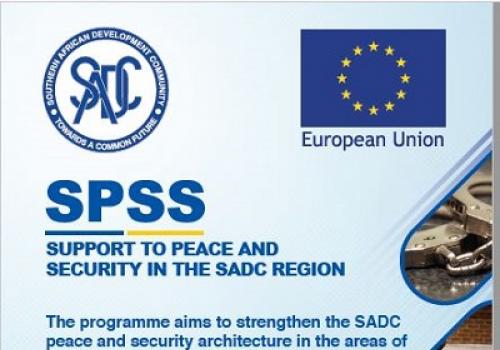The mapping of national and regional Infrastructure for Peace (I4Ps) in the Southern African Development Community (SADC) has yielded very useful information on the capacities and challenges of the Region’s conflict prevention mechanisms and I4Ps that will enable SADC to target interventions and empower local peace builders to address conflicts and violence at community level.
This was said by the Chairperson of the Mediation Reference Group (MRG), Ambassador Lucy Mungoma, during the opening of a workshop on Conflict Prevention, Management and Resolution Capability for Infrastructure for Peace hosted by the Republic of Mauritius from 10th to 13th May 2022. Ambassador Mungoma said as a result of the mapping, the SADC Secretariat has launched a comprehensive programme to enhance the capacity of state and non–state mechanisms in conflict prevention, management and resolution. The SADC Secretariat commissioned the mapping of regional and national Infrastructures for Peace in four Member States in 2020, namely the Democratic Republic of Congo (DRC), the Kingdom of Lesotho, South Africa and Zimbabwe, in order to strengthen the capacity of national and regional I4Ps.
The mapping exercise involved detailing the current situation of state and non-state regional and national I4Ps, assessing their strengths, weaknesses and challenges in order to suggest ways of enhancing their capacities in conflict prevention. The report of the first phase of the mapping exercise identified the strengths and challenges of state and non-state I4Ps in the four Member States. The report concluded that the effective operation of regional and national I4Ps has been undermined by their limited human, financial, and logistical capabilities.
The SADC Secretariat, said the report, must be prepared to provide institutional support to establish national I4Ps in fulfilment of the Maseru Declaration as well as its mandate to effect regional integration in the political and security spheres. State and Non-State Actors (NSA) require more capacity building based on solid conceptual foundations to contribute towards the national peacebuilding efforts by strengthening the pre-existing local knowledge and skill-sets on conflict mitigation.
Ambassador Mungoma said the Mauritius workshop will provide knowledge and skills to I4Ps on conflict prevention and on the factors that trigger conflicts in local communities and examine potential solutions.
The workshop was part of the Support to Peace and Security in the SADC (SPSS)Region programme through which SADC seeks to build the capacities of Member States to address intra-state and inter-state conflict. The SPSS programme, which has been supported by the European Union (EU) from 2018-2023, has also embarked on an elaborate exercise aimed at strengthening national dispute resolution mechanisms with strategic involvement of NSAs, and mapping of national and regional I4Ps in Southern Africa. Participants to the workshop will form part of the SADC roster of regional standby mediation practitioners from which expertise may be drawn by the SADC Organ on Politics, Defence and Security Cooperation and respective Member States, whenever the need arises.
Through the workshop, the MRG seeks to promote the active participation of NSAs in Mauritius in mediation processes, which complements existing efforts to strengthen cross-sectoral collaboration in the sustenance of peace and stability. Ambassador Mungoma said without strong and sustainable community level structures to make interventions when social conflicts arise, peace and stability will be difficult to sustain. The MRG aims to fulfill its mandate as a body seized with the enhancement of SADC’s capacity in Mediation, Conflict Prevention and Preventative Diplomacy and thereby improve the prospect of success in regional efforts to prevent and resolve significant inter- and intra-state conflict in the SADC Region.
She said Mauritius has historically been a beacon of peace and continues to provide important lessons and best practice in the areas of democracy and governance not just in Africa, but across the global community of democracies. The tradition of holding competitive multiparty democratic elections provides not only the opportunity for citizens to make informed and legitimate choices about the type of leadership and governance they prefer – but also clearly serves as a means of managing and resolving conflict amicably. The Mediation, Conflict Prevention and Preventative Diplomacy Structures were established in 2014 by the SADC Heads of State and Government to perform a number of functions including strengthening the preventative diplomacy, conflict prevention, mediation and resolution capacity of SADC; and undertaking all actions necessary to facilitate the effective mediation of conflicts.
These structures also carry out fact-finding missions in situations of potential conflict as directed by the Organ Troika or Summit; assist and advise the Organ Troika and parties in conflict as they prepare for dialogue, negotiation or mediation; and act in response to Organ Troika requests to intervene in conflict situations. Ambassador Mungoma said the MRG places a high premium on the role of cross-sectoral collaboration between State and NSAs in increasing the Region’s capacity to deal with conflict through deepening the skills-base in mediation at community and local level.

